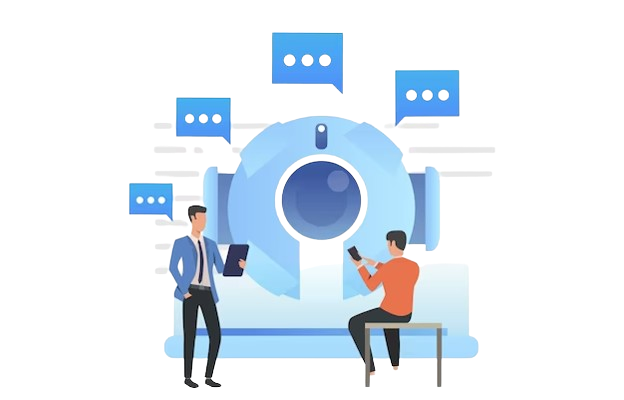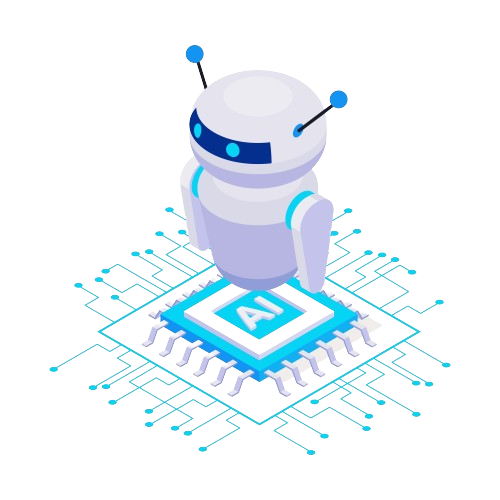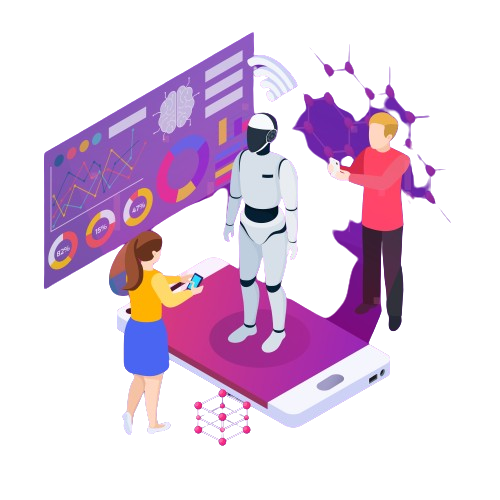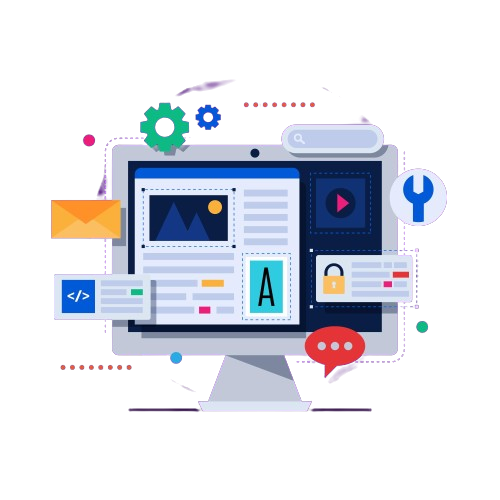
Introduction
In the swiftly evolving landscape of the existing-day place of job, Human Resources (HR) specialists discover themselves on the intersection of manner of life and innovation. As groups embrace the virtual age, the function of HR is undergoing a profound transformation, with technology gambling an increasingly more pivotal function. At the main edge of this technological wave is Artificial Intelligence (AI), a force that holds the promise of revolutionizing how HR features operate.
Artificial intelligence, with its ability for information assessment, pattern reputation, and automation, has already begun to reshape various factors of HR, from recruitment techniques to worker engagement techniques. The query that now looms huge is whether or not AI is always only a modern-day tool but a catalyst for profound tremendous trade in HR practices. Are we getting prepared for a generation wherein AI will become a critical asset, streamlining HR operations, fostering an extra inclusive place of business, and, in the long run, improving the employee revel?
Current AI Trends in HR
As organizations increasingly understand the rate of leveraging the era to decorate their HR capabilities, several AI traits have emerged, reshaping traditional practices and starting new possibilities. Let’s discover some critical matters in cutting-edge developments in AI and HR.
Resume Screening and Candidate Matching
One of the prominent applications of AI in HR is the automation of resume screening and candidate matching. Advanced algorithms examine resumes, investigate qualifications, and become privy to the most appropriate applicants for unique roles. This does not expedite the hiring device but permits mitigating biases via specializing in relevant capabilities and qualifications.
Predictive Analytics for Employee Retention
AI’s predictive analytics skills are being harnessed to forecast worker turnover and become aware of elements influencing retention. By reading historical facts and employee conduct styles, companies can proactively put strategies in force to beautify worker engagement, delight, and retention.
Chatbots for HR Services
Chatbots powered by Artificial intelligence are revolutionizing how HR software offerings are delivered. These digital assistants can cope with ordinary inquiries, offer statistics about agency rules, and assist employees with HR-related queries. Chatbots beautify performance by providing immediate responses and need HR specialists to focus on more complicated and strategic obligations.
Employee Engagement and Feedback
AI plays a pivotal role in gauging and enhancing employee engagement. Sentiment analysis tools and comment structures utilize AI to interpret worker sentiments, permitting organizations to deal with concerns promptly and create further superb paintings. Additionally, AI-driven surveys and tests offer valuable insights into worker satisfaction ranges.
Skills Gap Analysis
Identifying and addressing skill gaps within employees is a crucial factor in talent control. Artificial intelligence enables comprehensive talent gap evaluation by assessing the contemporary talent devices of personnel and predicting the capabilities required for destiny roles. This lets organizations position targeted schooling and development applications to bridge the gaps efficiently.
Diversity and Inclusion Initiatives
AI is being hired to foster variety and inclusion in inner agencies. By doing away with biases in recruitment strategies and promoting inclusivity in selection-making, AI contributes to growing a more varied and representative body of workers. This aligns with the wider reason for building a corporate subculture that values range and ensures identical possibilities for all personnel.
Potential Benefits of Artificial intelligence in HR
As Artificial Intelligence (AI) keeps permeating the place of Human Resources (HR), its potential advantages are becoming increasingly evident. Integrating AI into HR practices holds the promise of revolutionizing how businesses control their skills and human capital. Let’s delve into some of AI’s key benefits to HR capabilities.
Efficiency and Time Savings
AI automates time-eating and repetitive HR obligations, including resume screening, scheduling interviews, and dealing with habitual inquiries. By streamlining those techniques, HR professionals can redirect their efforts toward greater strategic and price-added sports, ultimately improving usual departmental performance.
Data-Driven Decision-Making
AI empowers HR teams with information analytics talents, allowing them to make knowledgeable choices primarily based on complete insights. From predicting worker turnover to assessing the frame of employees’ skills gaps, AI-pushed analytics allows HR professionals to navigate demanding situations and plan strategically for their destiny.
Improved Recruitment and Candidate Matching
Artificial intelligence in recruitment technology permits more accurate and independent candidate tests. Advanced algorithms examine resumes, inspect candidate qualifications, and health them with task necessities, most importantly to more powerful and goal hiring alternatives. This only somewhat effectively complements the great of hires; however, it additionally contributes to an extra numerous and inclusive workforce.
Enhanced Employee Experience
AI plays an important feature in enhancing the overall employee experience. Chatbots and virtual assistants offer personnel on-the-spot help, answering queries and supplying statistics according to HR guidelines. Additionally, predictive analytics can assist in finding out elements influencing employee pride, allowing proactive measures to enhance business conditions.
Strategic Talent Management
AI enables corporations to strategically manage their talent by figuring out skill gaps, predicting the future of employees’ desires, and recommending personalized knowledge of and improvement opportunities. This proactive technique guarantees that personnel are geared up with the abilities crucial to meet the evolving needs of their roles.
Cost Reduction
By automating recurring responsibilities and optimizing methods, AI contributes to value reductions in HR operations. The efficiency income finished through automation can cause large monetary financial savings, permitting organizations to allocate resources strategically and invest in regions that contribute to a prolonged period of growth.
Enhanced Diversity and Inclusion
AI can help mitigate subconscious biases in HR strategies and sell straightforward and inclusive practices. AI algorithms may be designed to discover and cast off biases, from recruitment to performance opinions, fostering a more diverse and equitable administrative center.
Challenges and Considerations
While integrating Artificial Intelligence (AI) in Human Resources (HR) offers numerous benefits, it has its demanding situations and considerations. As agencies embark on this transformative journey, dealing with potential pitfalls and moral considerations is vital to ensure the accountable and effective deployment of AI in HR features.
Ethical Considerations and Bias
One of the foremost troubles surrounding AI in HR is the potential for bias in decision-making. If AI algorithms are educated on biased data, they will perpetuate or exacerbate cutting-edge biases in recruitment and overall performance review regions. Ensuring equity and equity in AI structures calls for ongoing vigilance and cautious tracking.
Privacy and Data Security
AI in HR involves the analysis and processing of sensitive employee records. Ensuring compliance with information and protection rules and preserving robust cybersecurity measures are vital to shield employee privacy. Organizations must set up smooth policies and practices for accountable management of employee statistics.
Transparency and Explainability
AI algorithms frequently function as “black bins,” making it tough to understand how they arrive at specific picks. Lack of transparency can erode belief among personnel and HR experts. Ensuring transparency and explainability in AI structures is crucial for fostering trust and expertise inside the administrative center.
Overreliance on Technology
While AI can streamline techniques, there is a chance of overreliance on the era at the price of human contact. HR is a human beings-centric feature, and the position of AI must complement, not update, human intuition, empathy, and selection-making. Striking the proper stability is critical for maintaining a healthy organizational way of life.
Employee Resistance and Concerns
The introduction of AI in HR may also evoke troubles amongst personnel regarding assignment safety, privacy, and the equity of computerized approaches. Companies must talk transparently, deal with employee worries, and provide critical schooling to help personnel apprehend and adapt to the changing HR landscape.
Continuous Monitoring and Evaluation
AI systems need non-stop monitoring to ensure their effectiveness and relevance. HR specialists must regularly evaluate the overall performance of AI gear, examine their impact on key HR metrics, and make modifications as wished. This ongoing assessment is crucial for preserving AI programs aligned with organizational dreams.
Cost of Implementation and Maintenance
While AI can generate lengthy-term cost monetary savings, the initial implementation and ongoing upkeep charges can be exquisite. Organizations need to cautiously test the go-lower back on funding and expand a clean strategy for the deployment and safety of AI in HR to maximize its value through the years.
Conclusion
In the dynamic intersection of Artificial Intelligence (AI) and Human Resources (HR), the question posed at the beginning of our exploration earnings depth and nuance. A compelling narrative emerges as we journey through cutting-edge developments, potential blessings, and stressful AI-related situations in HR.
The integration of AI in HR represents a powerful pressure for first-rate transformation. The capacity blessings are tremendous, from streamlining operations and improving overall performance to fostering variety and strategic understanding control. However, this adventure has its challenges. Ethical troubles, biases, and the need for obvious and accountable AI deployment are traumatic conditions that require cautious navigation.




Leave a Comment